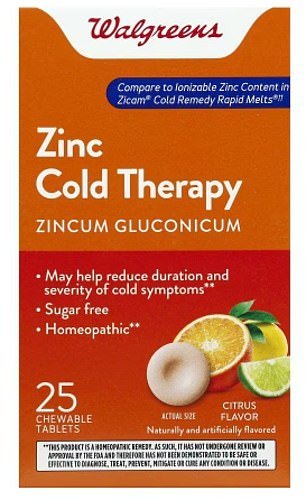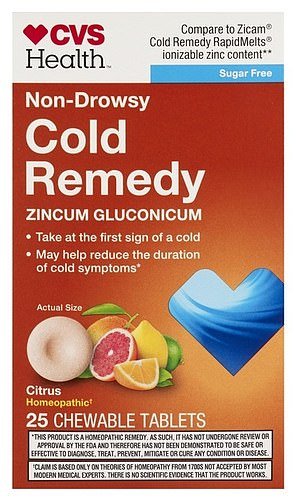A cheap and common supplement could cure a cold two days faster than normal, research shows
A cheap and common supplement could shorten the duration of your cold virus by as much as two days, a new analysis suggests.
Scientists examined previous data from eight studies involving more than 900 volunteers on whether zinc could relieve cold symptoms.
The supplement, which is available in supermarkets and costs just $5 a bottle, has long been praised by health gurus on social media as a “natural” cold and cough remedy.
But for the first time a gold standard assessment by experts from the prestigious The Cochrane Institute in Britain has given some credence to the supposed benefits.
The study concluded that zinc could shorten a cold by about two days, although the evidence supporting this finding was “weak.”
A cheap and common supplement could help fight the common cold, a study suggests
However, the experts warned that the capsules can also cause a range of side effects, including intestinal problems, nausea and an unpleasant taste in the mouth.
Zinc, a mineral found in foods such as chickpeas, cashews and some seafood, is essential for healthy DNA, building protein and strengthening the immune system.
Scientists have long suspected that it has infection-fighting benefits, as laboratory research has shown that it can stop the replication of viral cells in the mouth and nose.
This limits the extent to which a virus can spread through the body.


Zinc is popular in the US as a supplement to help shorten the duration of a cold. It is sold in popular stores for $12
Dr. Daryl Nault, a professor of health sciences involved in the study, said: ‘While there have been many trials of zinc, approaches vary, so it is difficult to draw conclusions with certainty.’
However, she added that the supplement “could potentially shorten the illness by a few days,” if people are willing to take the risk of “possible unpleasant side effects.”
She added: ‘The best advice remains to consult your doctor if you are feeling unwell and to inform them if you are taking supplements.’
Dr. Susan Wieland, researcher and senior author of the review, added: ‘The evidence on zinc is far from proven: we need more research before we can be confident in its effects.
“Additional studies that focus on the most promising types and doses of zinc products are important for patients and will allow us to understand whether zinc may have a place in treating the common cold.”
Zinc products have been marketed as a treatment for colds since the 1980s and are particularly popular in the US.
Walgreens has a “Zinc Cold Therapy” on its shelves for $11.49, while CVS is marketing a “Cold Remedy” that contains zinc for $11.99. Popular supplement company Nature Made sells 30 mg tablets for $5.79.
In the study, scientists also examined whether zinc could reduce the severity of cold symptoms, but found no ‘strong’ evidence to support this.
They also reviewed 15 studies on whether zinc could prevent the common cold, but found ‘no clear evidence’ that this was the case.
